- Home
- Joel Goldman
Final judgment lm-5 Page 10
Final judgment lm-5 Read online
Page 10
The garage door rose. Mason parked, killed the engine, and took his time. Cates lit a cigarette and started for Mason’s car. Griswold took his arm, telling him something Mason couldn’t make out, though it was enough to make Cates wait a little longer. Mason thought about hitting the remote for the garage door, letting it slide back down the rails as if he hadn’t noticed the cops. It would have been worth it just to see Cates swallow his cigarette. He got out instead, meeting them on the driveway.
They wore dark suits and tan overcoats left open for quick access to the guns they wore under their jackets. Their shift had ended a while ago and the late hour showed in the sag of their faces. Cates had beer breath. Griswold had mustard on his white shirt. They were working Fish’s case off the clock, meaning they were close to arresting him or that it had gotten personal.
“Place is a mess or I’d invite you in,” Mason told them.
Griswold nodded. “You’re a compulsive smart-ass, Mason. Not that we mind. Sometimes you’re even halfway funny.”
“Like midnight on Valentine’s Day?”
“Not yet.”
“It’s been a long day. Give me a minute to get warmed up,” Mason said.
“We got an ID on the body in your client’s car,” Cates interjected.
Mason doubted they had camped out in front of his house just to tell him that.
“I’m listening.”
“Charles Rockley,” Cates said. “What do you know about him?”
“You think my client killed him and you expect me to answer that question? I should be asking whether you’ve got anything that links my client to this guy.”
Griswold put his hand on Cates’s arm again. “It’s late, we’re all tired. You could do your client some good if he’s got any reason for us to believe he’s not connected to Rockley.”
“You’re right about that, only I haven’t had a chance to tell him about Rockley. But you didn’t wait here just to tell me about Rockley. Monday would have been soon enough. What do you want?”
“We want anything you’ve got on Rockley,” Griswold answered, sticking to his story. “We know he worked at the Galaxy Casino.”
Cops didn’t ask a suspect’s lawyer for information on the victim unless they really had nothing to go on or they thought the lawyer was dumb enough to help them out. Mason rejected both possibilities, knowing the cops would get to the point when they were ready.
“That’s not much. A lot of people work at the casino. You’d do better to talk to them.”
“This guy worked there too, only he isn’t talking,” Cates said, handing Mason a photograph of a man lying on the pavement, the side of his face pressed against the ground, his one visible eye wide open, the back of his head blown away. The time and date stamp in the bottom right hand corner said the picture had been taken two hours ago.
“Who is it?” Mason asked.
“Thought you might know,” Cates said.
“Why would I know him?”
“He had a piece of paper in his hand with your name and phone number on it.”
TWENTY-SEVEN
This wasn’t the punch Mason had been expecting, though it rocked him. He had no explanation and couldn’t think of one he’d be happy about. He studied the picture more closely. A man who dies naturally and peacefully looks like he’s sleeping, not dead. Take the same man, excavate his skullcap with a bullet, and you get a death mask his mother wouldn’t recognize. Mason shook his head at the cops. Griswold’s expression was flat. Cates flashed a devil’s grin through cigarette smoke.
“I give up. Who is he?” Mason asked.
“A bartender at the Galaxy name of Johnny Keegan,” Cates said. “Why would he have had your name and number?”
“Beats the hell out of me.”
“With luck, it might,” Cates said. “Let us know if you think of something. Monday is soon enough.”
“Help me out,” Mason said. “When did it happen?”
Cates was halfway down the driveway, his back to Mason. Griswold watched him go. “He doesn’t like you.”
“Occupational hazard. How about you?”
“Doesn’t matter. All I want to know, are you part of the problem or part of the solution?”
“You’ll be the first to know.”
“Glad to hear it. Keegan finished his shift at the casino at eight o’clock. His body was found in a vacant parking lot about a mile away around nine-thirty. So, you still got no idea why he had your name?”
“I wouldn’t have known him if he bit me on the ass.”
“I hear you lawyers are into that,” Griswold said. “Better watch out Keegan doesn’t get you from the grave.”
Two Galaxy employees murdered in one week was unusual enough. That they were both linked to Carol Hill was even more unlikely. That they were both linked to him was the trifecta of bad karma. Every rock turned over in this case uncovered something that made him look like a coconspirator.
Griswold and Cates suspected that Mason had known about the body in Fish’s car. They had said as much when they first interviewed Fish.
Kelly Holt suspected that Mason knew Rockley was the murder victim since he had sent Blues to check out Rockley’s apartment. She assumed that meant Fish was guilty, and she and Pete Samuelson were relying on that to pressure Fish to accept their offer of cooperation.
Now that they knew Rockley was the murder victim, the cops would find out about Carol Hill’s lawsuit as soon as they talked to Al Webb and Lila Collins. It wouldn’t take long for them to catch up to Mark Hill, who would happily spill the story about Mason and Blues bracing him in the parking lot at Easy’s. Even though Mason and Blues hadn’t identified themselves, the cops would make the connection from the descriptions Hill would provide.
Add Johnny Keegan to the mix, put Mason’s name in his hand and a bullet in his head, and stand back. Mason was lucky the cops didn’t take him downtown.
The truth was worse than what either the cops or the FBI believed. He could explain everything, make it all go away, and qualify for his civic duty merit badge. All he had to do was give up Vanessa Carter and himself. Then he realized how much worse the truth really was. If the cops found the tape of him asking Ed Fiori to blackmail Judge Carter and figured out that Rockley or Keegan were linked to the tape, Mason would shove Avery Fish from the top of the list of murder suspects.
Mason nearly tripped over Tuffy as he walked into the house. The sleeping dog yawned, rolled over, and opened one eye at him before going back to sleep.
He turned the light on in the kitchen, sat at the breakfast table, and massaged his temples, wondering if he could trade places with the dog. The message light on his answering machine was blinking. He pushed the play button and closed his eyes.
“I’m coming home for a few days. My plane gets in at ten, tomorrow morning. It would be nice if you could pick me up. Happy Valentine’s Day,” Abby Lieberman said.
“Perfect,” Mason said to the dog. “Just perfect.”
Mason wandered through the first floor of his house, stopping in the living room. The dining room table had been transplanted there to make room for his rowing machine. He sat at the head of the table, lights off, staring out the picture window at the street. Griswold and Cates had hit him with the photograph of Johnny Keegan’s body hoping he’d slip and give them something they could use. Mason had taken the punch but disappointed them.
He didn’t blame them for trying since Keegan had left this life clutching a scrap of paper with Mason’s name on it. Turning over the possibilities, Mason suspected that Keegan must have known about Mason and Judge Carter. He and Rockley could have been partners in the blackmail scam.
That scenario raised more questions. Was Keegan about to call Mason when he was killed? If so, why? Maybe Keegan had been planning to put the squeeze directly on Mason, leaving Mason to wonder if the killer was a homicidal guardian angel who had killed Keegan to protect Mason.
There was something else that didn’t fit.
Keegan was a bartender. Rockley was a middle manager. How did two guys from the rank and file get their hands on something as explosive as the tape of Ed Fiori’s conversations with Vanessa Carter and with him?
Remembering that Mark Hill had all but blamed Rockley and Keegan for ruining his life, Mason pegged him as the early favorite for double-murderer of the week. If he was right, Carol Hill could be her husband’s next victim.
He had been ready to convict Carol of being her husband’s accomplice the minute Vince Bongiovanni assured him of her innocence. One murder later, Mason was worried that she was the third name on her husband’s hit list. Not that those two scenarios were mutually exclusive.
He marveled at how little it took for him to slap the labels of innocent and guilty or killer and next victim on someone he’d yet to meet. It was no surprise then that the cops and the FBI didn’t hesitate to brand Fish on less information. He dialed Bongiovanni’s cell phone.
“Yeah,” Bongiovanni answered.
Music and loud voices made it hard to hear. “It’s Lou Mason. Where’s Carol Hill?”
“How the hell should I know? I’m her lawyer, not her nanny,” Bongiovanni shouted over the din.
“Johnny Keegan’s body was found a couple of hours ago. Somebody blew the back of his head into next week.”
Mason listened to the music, waiting for Bongiovanni to answer. It was hard-driving country. He didn’t figure Bongiovanni for honky-tonk. He knew his phone call would raise questions he didn’t want to answer, but that couldn’t be helped. Not if he was right about Mark Hill. The music faded to a low buzz, heavy on the bass. Bongiovanni had found a quieter place to talk.
“What do you know about Johnny Keegan?” he asked Mason.
“Enough to tell you that if he and Charles Rockley end up dead in the same week, you better be damn sure you know where your client is and it better be someplace her husband can’t find her.”
“Are you telling me that Mark Hill killed Rockley and Keegan?”
“I’m telling you to take care of your client. One other thing. I can’t make it tomorrow morning. How about two o’clock?”
“I’ll make it work,” Bongiovanni said. “And thanks for the heads-up.”
TWENTY-EIGHT
Mason retrieved Saturday morning’s newspaper from the end of his driveway as Tuffy chased scents around the trees in the front yard. The air was crisp, the sky a Neapolitan blend of orange, pink, and blue layers as the sun edged over the horizon, promising a mild day, a teaser for the coming spring.
The couple that lived across the street came out their front door wearing matching jogging outfits, the husband leading their chocolate Lab on a leash twisted around his fist. They turned down the sidewalk, ignoring him. Tuffy bolted for a sniff of the Lab. The neighbors reined their dog in, casting a venomous look at Mason for keeping such an ill-mannered animal as they picked up their pace, putting distance between them.
Watching them run away, he replayed last night’s conversation with Bongiovanni. He had jumped to the conclusion that Mark Hill had killed Rockley and Keegan out of jealousy and risked disclosure of his problems with Judge Carter to protect Carol. Ten hours later, he wasn’t so certain. Hill may have killed Rockley and Keegan, but that didn’t explain why he chose Avery Fish’s car as Rockley’s casket. Without that missing link, it was hard to tie the two murders together.
Rachel Firestone hadn’t connected the murders either. Her story on Rockley was front page, below the fold. It was straightforward although the slant edged toward sensational. She reported that the police couldn’t confirm the anonymous tip she’d received concerning the identity of the murder victim found in the trunk of Fish’s car. They acknowledged that they had sent DNA samples to the FBI for identification but said they had yet to receive a report.
Despite the cops’ equivocation, the Star considered the tip reliable enough to print the story naming Rockley as the victim. That meant Rachel had corroborated it with the only source that could-the FBI. Yet the article quoted spokesmen for the FBI and the U.S. attorney as having no comment. A Police Department spokesman also declined comment when she asked him if someone had leaked the story to embarrass the department.
The story was more about the cops getting scooped than either the killer or the victim, since she had nothing to report about them. She capped it off by tying Rockley back to Avery Fish’s trunk and the mail fraud charges pending against Fish, adding Mason’s no comment to the litany of those who should know something but claimed that they didn’t. Anyone reading the story would conclude that the cops, the feds, and the lawyers were either morons or on drugs.
The story on Johnny Keegan was on the inside of the Metropolitan section of the paper, reported without a byline, one of several blurbs about overnight crimes committed in the city. Mason took no comfort in that. Rachel and the cops would make the connection soon enough.
He put the paper down and scratched Tuffy behind her ears. He still hadn’t figured out what he would say when Bongiovanni asked him again how he knew about Johnny Keegan and Carol Hill. He had until the afternoon to figure that one out. Plenty of time.
TWENTY-NINE
Kansas City International Airport was on the northern edge of the city limits on a broad, flat plain that confirmed every stereotype about Midwestern topography. It was so far from the center of the city that people arriving for the first time often thought they had boarded the wrong plane or that they had been hijacked en route.
Its saving grace was a design that put the gates practically on the curb, allowing people to meet their friends and family as they got off the plane. It was an anomaly in an age of draconian airport security in which wheelchaired grandmothers were nearly strip-searched and travelers were forced to walk a mile to find a familiar face.
The layout also resulted in tightly knotted clusters of people converging like a mosh pit in front of the door from which passengers emerged. Abby’s flight was full, which meant that the area in front of the gate was clotted with people waiting for its arrival. Young children clung to parents or darted between legs, stepping on toes until they were put in time-out. Old parents clung to middle-aged children, waiting for their grandchildren. Lovers stood on tiptoes, craning their heads, anticipation arching their backs.
Mason leaned against the wall opposite from where the passengers would appear. Surveying the crowd, he realized he didn’t fit in any of these categories; such was the limbo in which his relationship with Abby lingered.
When she stepped through the gate, smiling and waving at him through gaps in the crowd, his heart quickened. She was carrying a coat over one arm and wearing black slacks and a bright red sweater, the contrast perfect with her porcelain skin. His glimpse of her erased months of doubt even though she’d asked for nothing more in her phone message than a ride from the airport and offered less in return. All she had said was that it would be nice if he could be there to meet her. That was enough for him.
Blues had once asked him if he wished that Abby was the only woman he’d ever loved. He wasn’t certain how to answer, not regretting all his past relationships, just the ones of which he wasn’t proud. Finally he answered, telling Blues no, but he hoped she was the last woman he would ever love.
They wedged through the crowd, joining hands as people swirled around them. She looked up at him, her eyes expectant, the corners of her mouth crinkled in a sly grin. She let go of one hand, brushing her dark bangs off her forehead, giving her head a shake and thumping him lightly on the chest.
“It’s okay. You can kiss me.”
He leaned down, their lips brushing, her mouth slightly parted. “You look terrific. I’m glad you called,” he said, still holding her hand.
“And why not? You’re cheaper than a cab,” she teased. “Let’s get my bag.”
He waited until they pulled out of the parking garage to ask if she had more in mind than a free ride.
“How long will you be in town?”
“A week. I’m mee
ting with people in the senator’s Kansas City office and a number of locals-contributors, politicians, that kind of thing. Plus I’m doing some advance work. Josh is the guest of honor at a civic award dinner next Saturday night.”
Mason noted that she referred to Josh Seeley both as “the senator” and by his first name, blurring their professional and personal relationships. Senator Seeley was married and Abby was no home wrecker. Still, Mason hadn’t been able to shake his own jealousy when he’d seen them together. Real or imagined, their relationship bothered him. He hadn’t made an issue of it, realizing that Abby’s refusal to live with the violence that surrounded his cases posed the biggest threat to their future. He was surprised by her phone call and thrilled by her warm greeting, but he hesitated to read too much into either.
“Sounds like a busy week.”
“All in the service of our constituents,” she added with a laugh. “The Missouri Republican Party is having its annual Lincoln Day fund-raiser tonight at the Westin in honor of Abe’s birthday. The senator will be shaking hands until his fingers fall off. I could use a date.” She raised her eyebrows and smiled at him as if to apologize for the past. “I know this is short notice and it’s okay if you’ve got plans.”
“You’re in luck,” he said, tucking his smile into his cheek in a failed effort to play it cool. “I’m fresh out of plans.”
“Great. It’s black-tie and cocktails are at six. Pick me up at five-thirty. I’m warning you, though. My job means that I show up early and stay late.”
“I can do that. What are you doing the rest of the day? Are you going to write speeches, mend fences with the voters, or clean your apartment?”
Abby turned in her seat, her back against the door. The light in her eyes gave the sun a run for its money. “Whatever you want.”

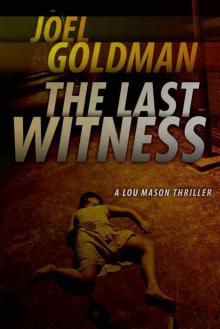 The last witness lm-2
The last witness lm-2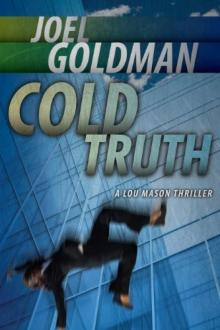 Cold Truth
Cold Truth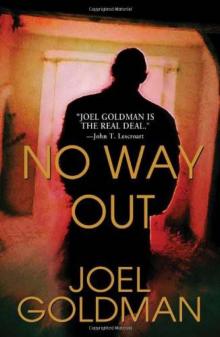 No Way Out (2010)
No Way Out (2010)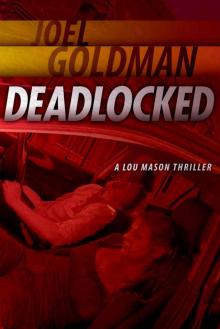 Deadlocked (Lou Mason Thrillers)
Deadlocked (Lou Mason Thrillers)![[Lou Mason 01.0] Motion to Kill Read online](http://i1.bookreadfree.com/i1/03/24/lou_mason_01_0_motion_to_kill_preview.jpg) [Lou Mason 01.0] Motion to Kill
[Lou Mason 01.0] Motion to Kill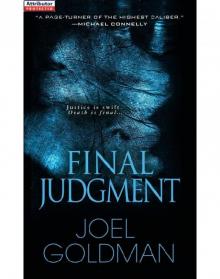 Final Judgment
Final Judgment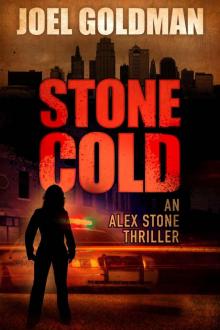 Stone Cold
Stone Cold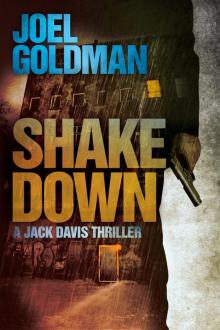 Shakedown
Shakedown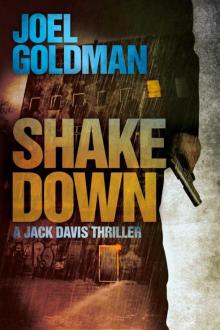 Shakedown jd-1
Shakedown jd-1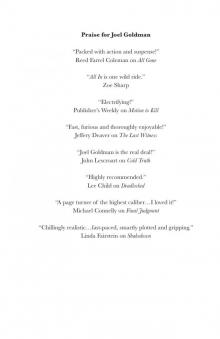 All Gone
All Gone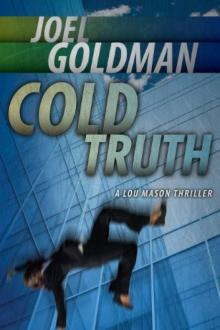 Cold truth lm-3
Cold truth lm-3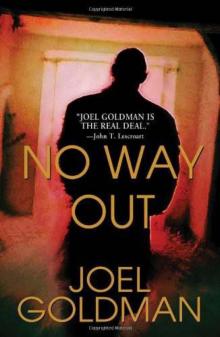 No way out jd-2
No way out jd-2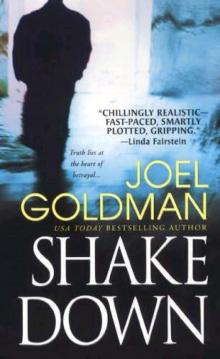 Jack Davis Mystery - 01 - Shakedown
Jack Davis Mystery - 01 - Shakedown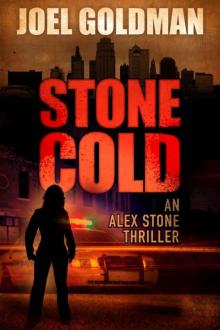 Stone Cold as-1
Stone Cold as-1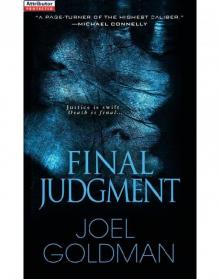 Final judgment lm-5
Final judgment lm-5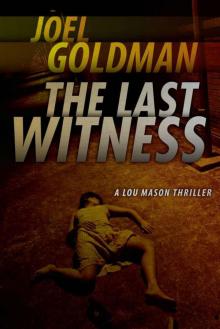 Lou Mason Mystery - 02 - The Last Witness
Lou Mason Mystery - 02 - The Last Witness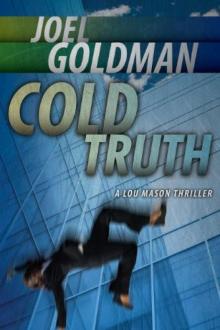 Lou Mason Mystery 03-Cold Truth
Lou Mason Mystery 03-Cold Truth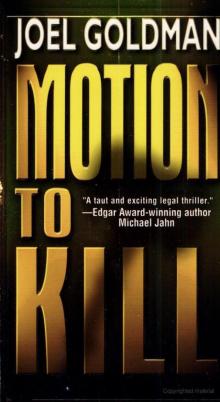 Motion to Kill
Motion to Kill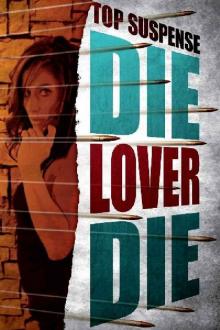 Die, Lover, Die!
Die, Lover, Die!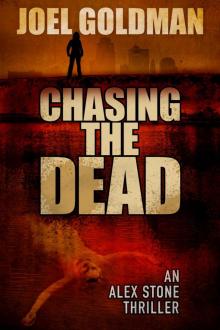 Chasing The Dead (An Alex Stone Thriller)
Chasing The Dead (An Alex Stone Thriller)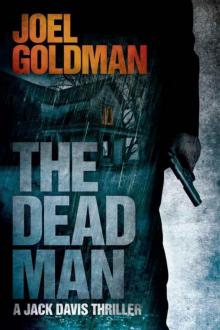 The Dead Man
The Dead Man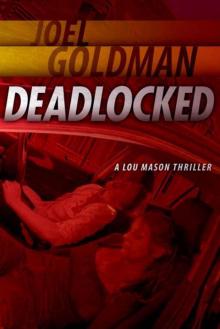 Deadlocked lm-4
Deadlocked lm-4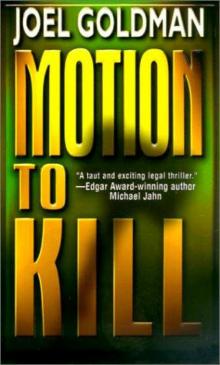 Lou Mason Mystery - 01 - Motion to Kill
Lou Mason Mystery - 01 - Motion to Kill Die, lover, die
Die, lover, die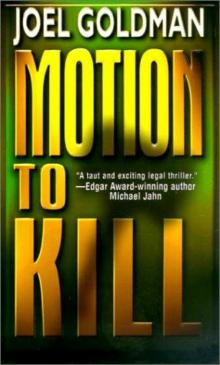 Motion to Kill lm-1
Motion to Kill lm-1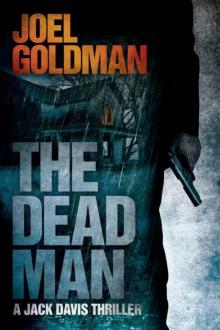 The Dead Man jd-3
The Dead Man jd-3